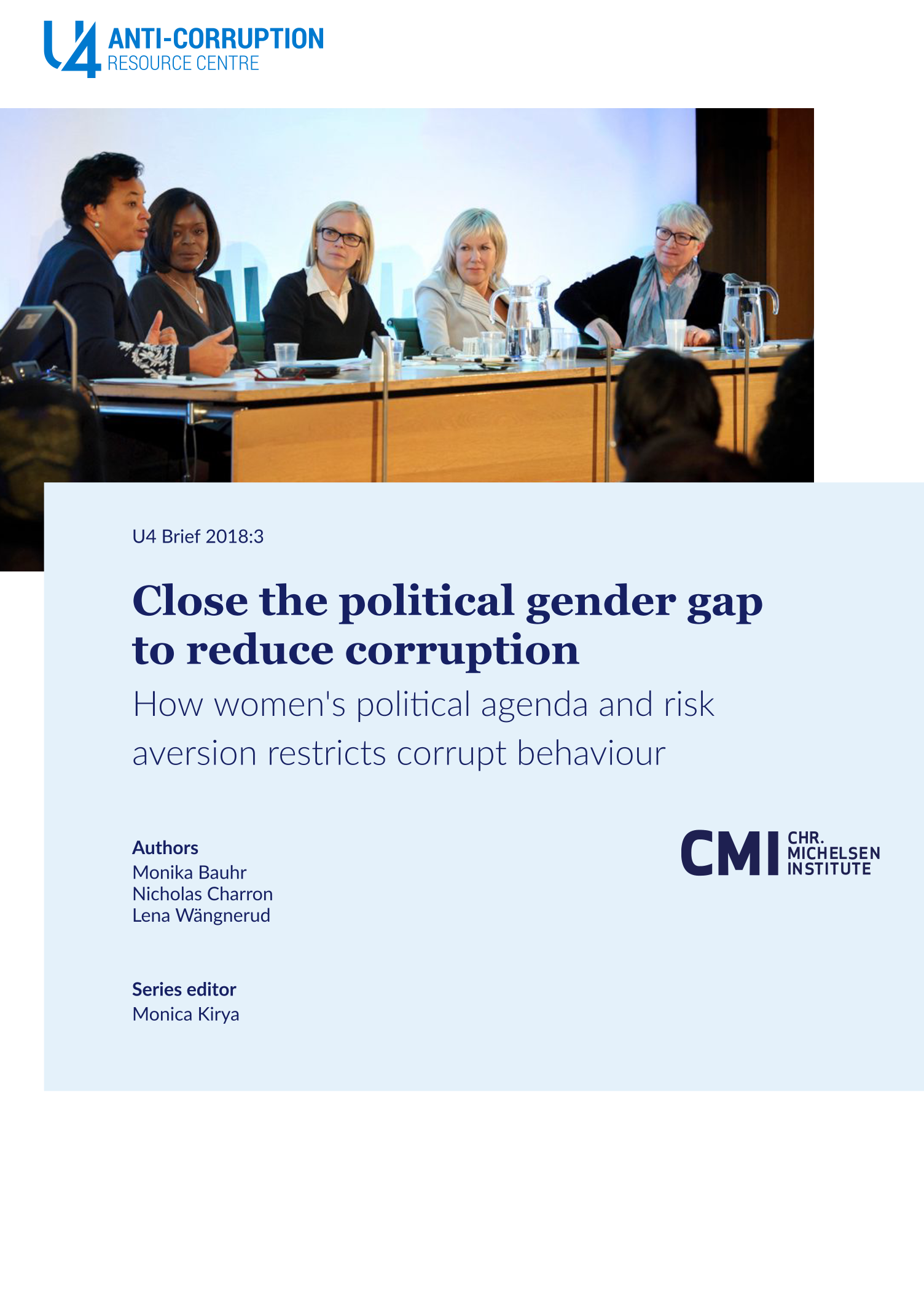Main points
- Increased representation of women in elected office can reduce both petty and grand corruption.
- Women in elected office reduce corruption both because they are risk averse and because they have a different political agenda than men.
- Women in elected office reduce petty corruption in their efforts to improve public service delivery and grand corruption because it is detrimental to their political careers.
- Women in elected office reduce the rate of bribery for public services, particularly for women.
- Donors can promote women’s representation and reduced corruption through supporting the anti-corruption agendas chosen by women.



